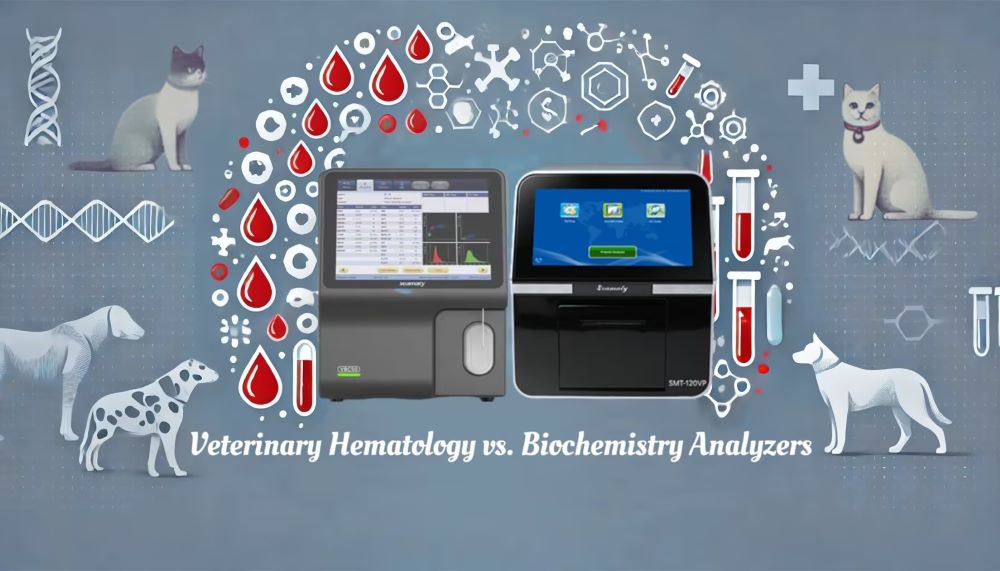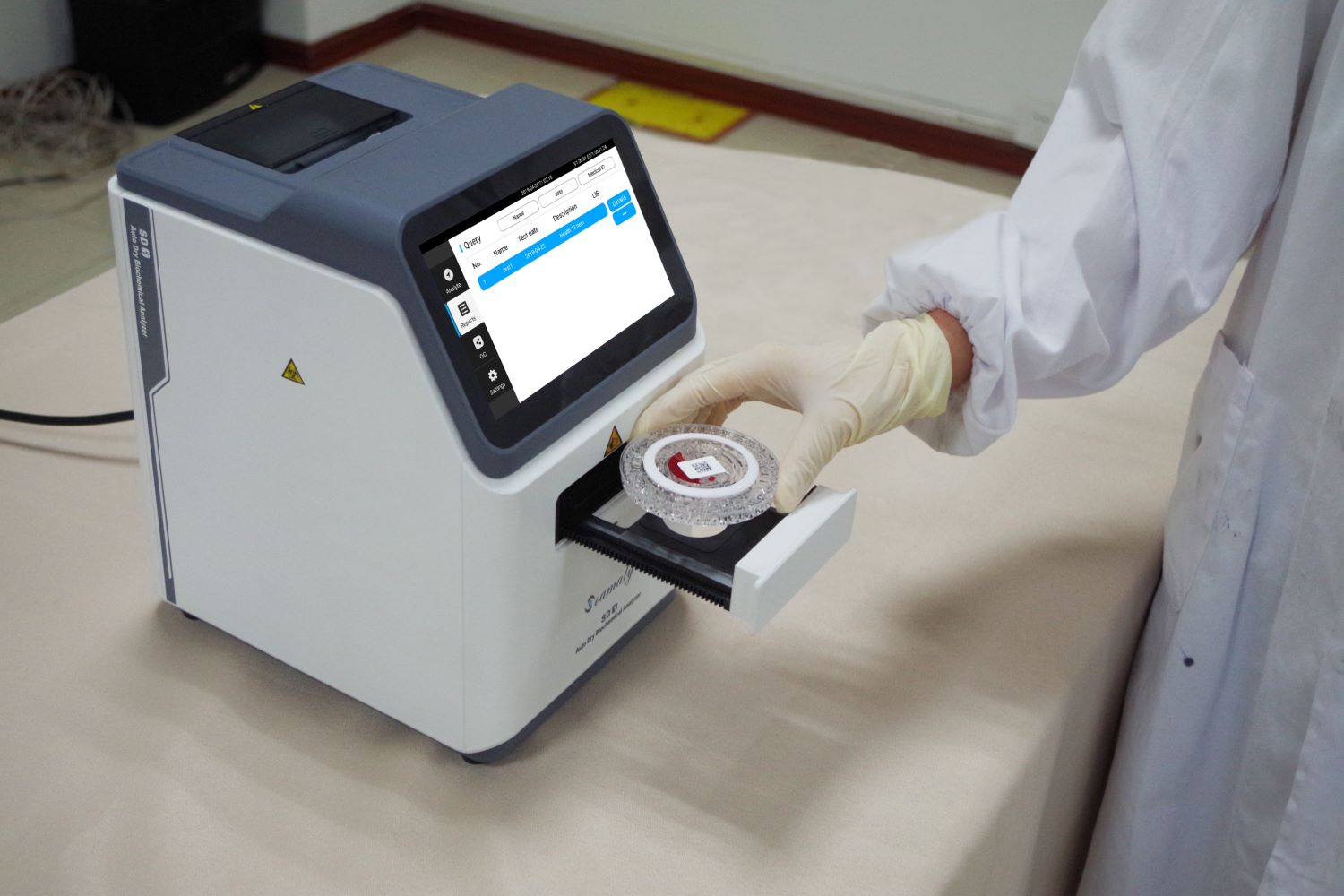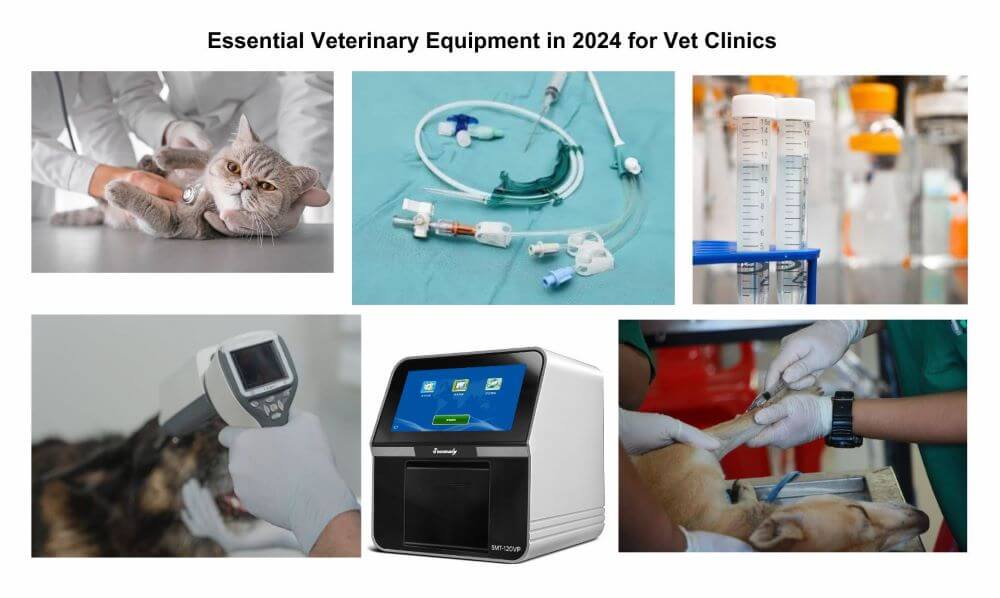release time:2024-10-15 16:15:58

Two essential diagnostic tools used in vet clinics are hematology analyzers and biochemistry analyzers. While both devices analyze blood, they focus on different aspects of an animal’s health. In this post, we’ll explore four key differences between veterinary hematology and biochemistry analyzers to help you understand when and why to use each.
For example, a hematology analyzer like Seamaty's VBC50 would be ideal for tracking infections or anemia, while biochemistry analyzers such as the SMT-120VP are better suited for monitoring liver or kidney diseases.
Devices like the VBC50 offer 29 reportable parameters for in-depth blood analysis, while the SMT-120VP can test up to 24 biochemical parameters in one run, giving comprehensive insights into animal health.
Using both analyzers together provides a holistic view of an animal’s health, helping veterinarians make accurate diagnoses and treatment plans. Seamaty’s VBC50 and SMT-120VP, when used together, offer a complete diagnostic solution for both short-term and long-term care.
The main difference between veterinary hematology analyzers and veterinary biochemistry analyzers lies in the types of tests they perform and the kind of information they provide about the animal's health.
|
Feature |
Hematology Analyzer |
Biochemistry Analyzer |
|
Focus |
Blood cells (RBC, WBC, platelets) |
Chemicals in plasma/serum (enzymes, ions) |
|
Primary Function |
Detects infections, anemia, immune disorders |
Evaluates organ function and metabolism |
|
Sample Type |
Whole blood |
Plasma or serum |
|
Examples of Diseases |
Leukemia, infections, anemia |
Liver/kidney disease, diabetes |
|
Use in Clinics |
Pre-surgery bloodwork, routine health exams |
Chronic disease monitoring, diagnostics |
Both veterinary hematology analyzers and biochemistry analyzers play critical roles in diagnosing and managing animal health. While hematology analyzers focus on blood cell counts and are ideal for detecting infections or anemia, biochemistry analyzers assess organ function and metabolic health. In a veterinary setting, having both types of analyzers ensures comprehensive care.
For clinics seeking reliable and easy-to-use devices, products like the Seamaty VBC50 and SMT-120VP offer fast, accurate results with minimal maintenance, helping veterinarians provide the best possible care.

2024-01-08
Explore the must-have medical lab equipment for setting up a new lab. From chemistry analyzers to PCR machines, discover top brands and their uses in accurate diagnostic testing for efficient and reliable laboratory operations.

2023-12-18
Explore the essential veterinary equipment for 2024, ensuring optimal care for diverse pets. From advanced chemistry analyzers to specialized tools for exotic animals, this comprehensive guide covers must-have instruments and additional ones for your vet clinics.

2022-05-31
Microfluidics offers absolute advantages in terms of fractionation and time for chemical and biological analysis. It enables high precision and sensitive separation and detection even with little sample and reagents.